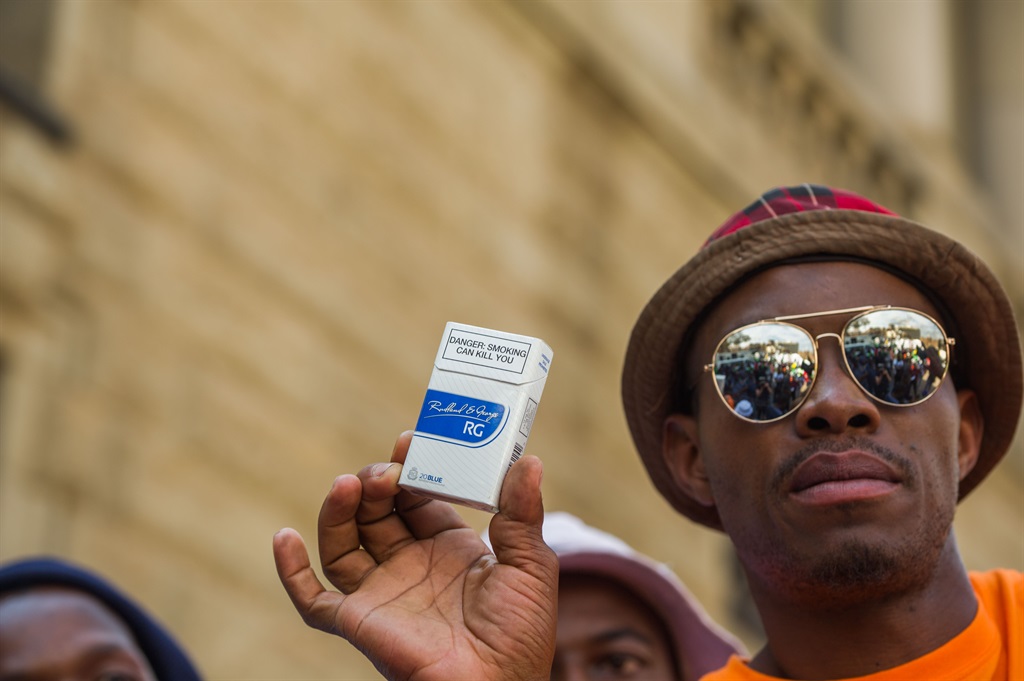
Efforts to clampdown sale of illicit goods have been hamstrung by lack of capacity within law enforcement agencies.
With only five inspectors countrywide it has become an impossible mission to bust people dealing with counterfeit goods. And an inter-governmental enforcement agency committee, which had representatives from different government and law enforcement agencies and which was set up to plan crime-busting operations within the sector, was no longer active.
As this was not enough, a mole within the system has been leaking information about planned operations to bust shops selling illicit goods. This resulted in shop owners quickly closing down their operations.
This comes as the country battles with the rise of sale of illicit goods, which amount close to 10% of the gross domestic product (GDP).
This was revealed during a seminar on deconstruction of illicit economy organised by the Consumer Goods Council of South Africa last week.
The seminar, held at The Wanderers Club in Illovo, Gauteng, featured experts from local and regional business organisations, unions and police officials.
Gauteng, Mpumalanga, the Free State and the North West had been identified as “hot spot” provinces by police, who also revealed that, during a bust this year, they had confiscated spices and sanitary pads, worth R3 million.
Authorities committed to work closely together to pounce on those selling illicit goods. The Johannesburg CBD was identified as one of the problematic areas.
Companies and Intellectual Property Commission senior investigator Mpuelleng Mokoena, who also was appointed as an inspector by the ministry of trade and industry, revealed to City Press on the sidelines of seminar that there were only five inspectors tasked to act against complaints filed by companies in the countries.
According to the counterfeit goods act, inspectors armed with a warrant obtained from the courts has powers to seize suspected counterfeit goods until a criminal or civil case has been finalised.
Mokoena said there had been instances where suspects had been notified they were coming before they could executive their warrants.
“We apply for a warrant [at the magistrates’ court] and when we get there, [sometimes] we find these shops closed. We don’t know who leaked the information.”
Adding to their challenges, Mokoena said the inter-governmental enforcement agency committee was no longer active.
“That has died off for some time. I was very happy to hear from the police commissioner [General Khehla Sithole]. I’m looking forward to have collaborations of that nature,” Mokoena said.
Mokoena joined the Companies and Intellectual Property Commission in 2000 as a legal examiner of trademarks and in 2013 became an investigator in the intellectual property enforcement unit before she was appointed by the ministry as an inspector.
Mokoena said on average 24 complaints were filed a year.
She said some of their cases had succeeded at the commercial crimes court resulting in the arrest of suspects in operations that had been jointly conducted with police and the South African Revenue Service.
Sithole revealed at the seminar there was a need for broader cooperation between law enforcement agencies.
He said police were understaffed and there were plans to equip detectives with new ways to deal with cyber crimes.
Police had a “weak point” in their intelligence capacity when dealing with illicit crimes but there were processes in place to address this, including reviewing strategies and training of officers, Sithole said.
He said syndicates selling illicit cigarettes and those involved in cash-in-transit heist were some of those identified by authorities.
Some of these syndicates operated within and outside the country.
“We also have our organised crime threat strategy which doesn’t only function within the country but also linked to the regional, continent and international. At that particular level there are criminals that we’ve arrested that belong to syndicates ... now the new modus operandi analysis centre is going to tell us almost every time where these syndicates are, how do they think and their modus operandi. Now we will kill their modus operandi before crime takes place. One of the challenges within our plan is a criminal underworld that is actually operating and trying to enhance illicit trade. Now we want to beef up our technology advancement so that we actually get ahead of them,” Sithole said.
Consumer Goods Council chief executive Gwarega Mangozhe said the illicit economy was becoming a problem and had a profound impact on the fiscus because it inhibited the state from collecting value-added tax, customs and excise.
He said about R7 billion had reportedly been lost by the tobacco industry.
“There is an estimate that the size of illicit economy might be as much as 10% of GDP in South Africa, which then becomes a substantial number.”
He said complaints made to the council had increased over the past three years.
These related to goods sold less below the customs and excise price, and included tobacco, alcohol and food stuffs.
Mangozhe said they were in the process of commissioning a reputable research institution to conduct a broad study on the extent the sale of illicit goods had in the economy.
In addition, products were being barcoded to verify their authenticity.
Working close with police, Mangozhe said, would assist in sharing information between parties to ensure that law was enforced.




 Publications
Publications
 Partners
Partners








